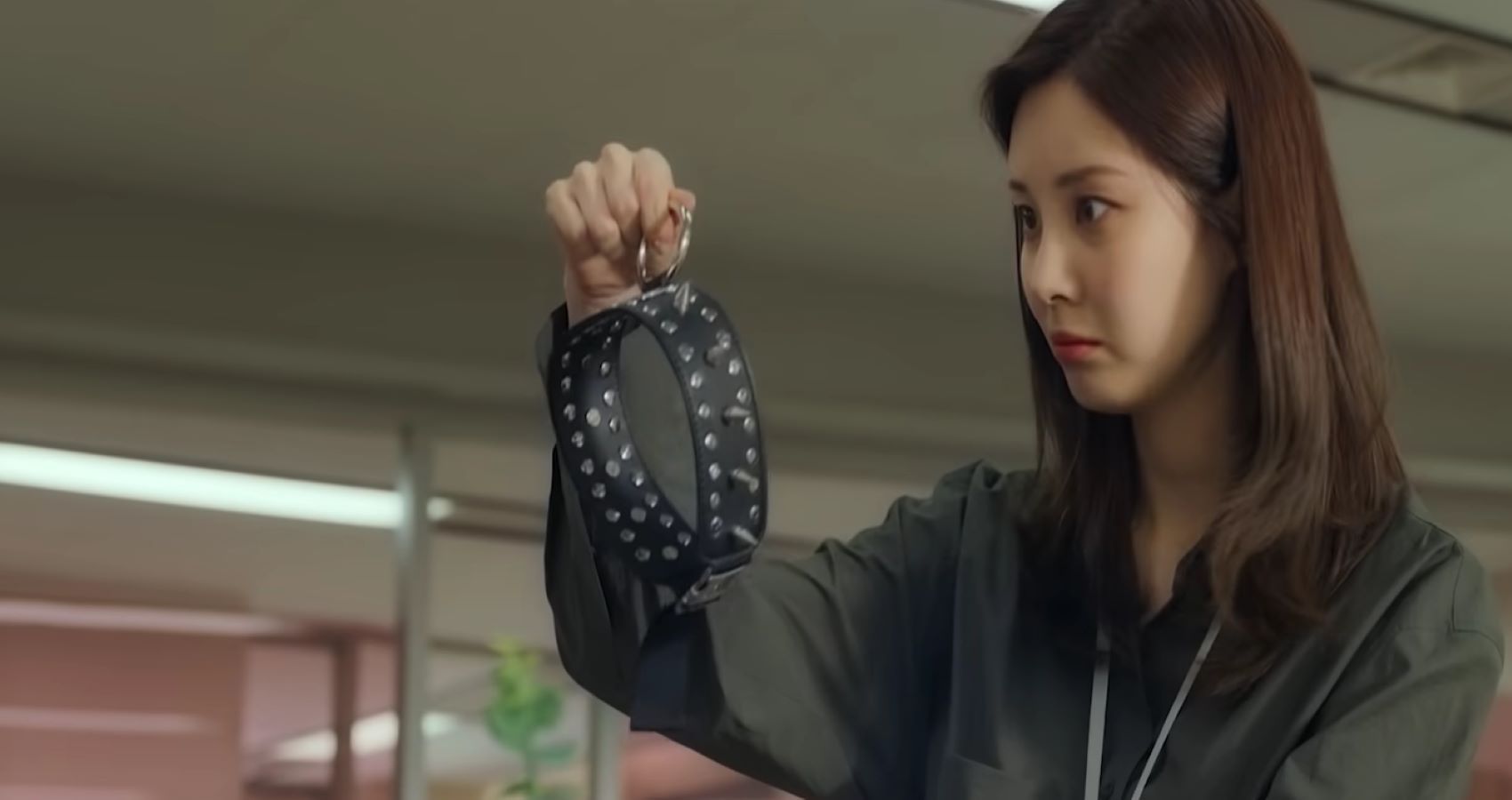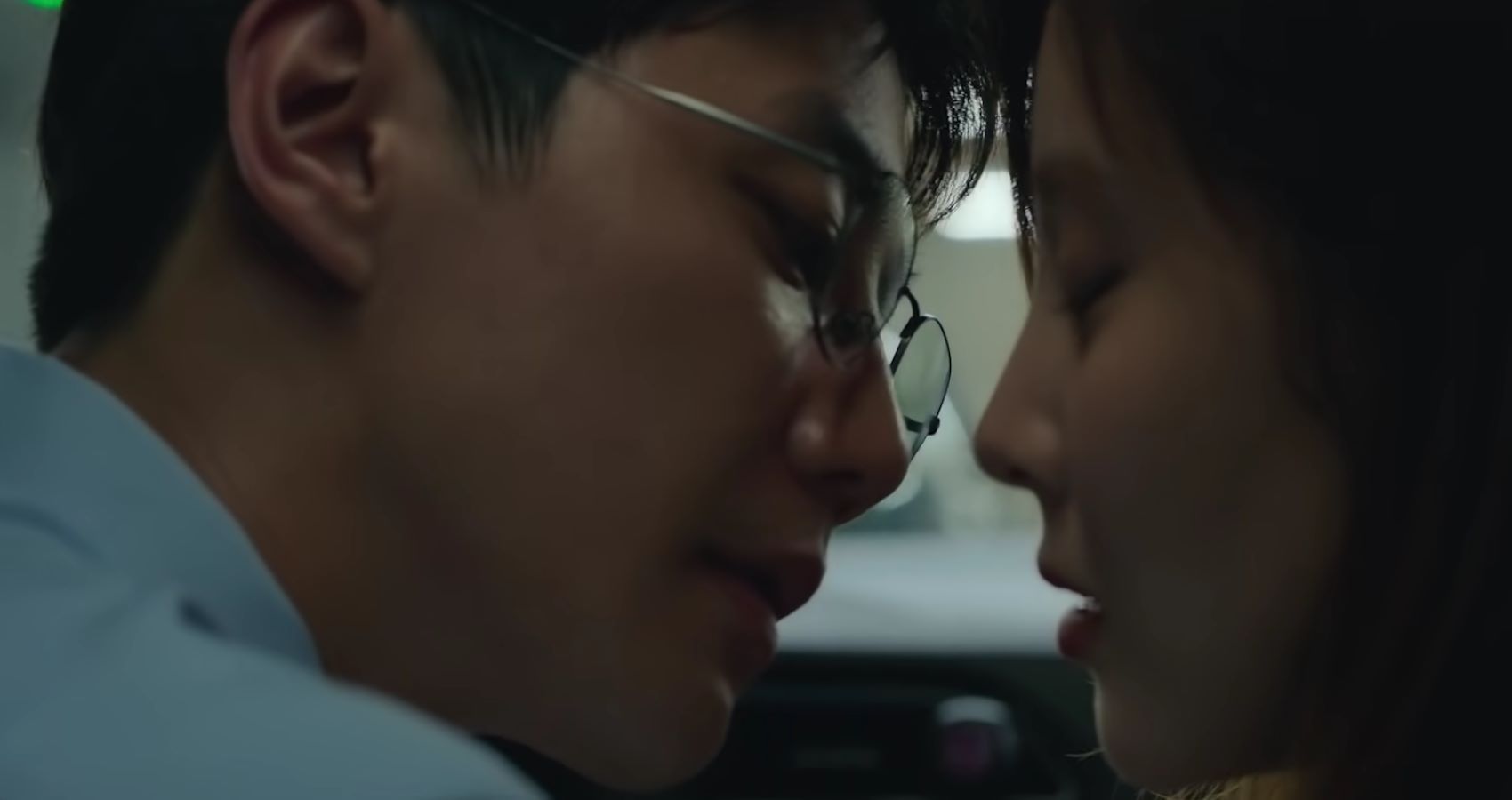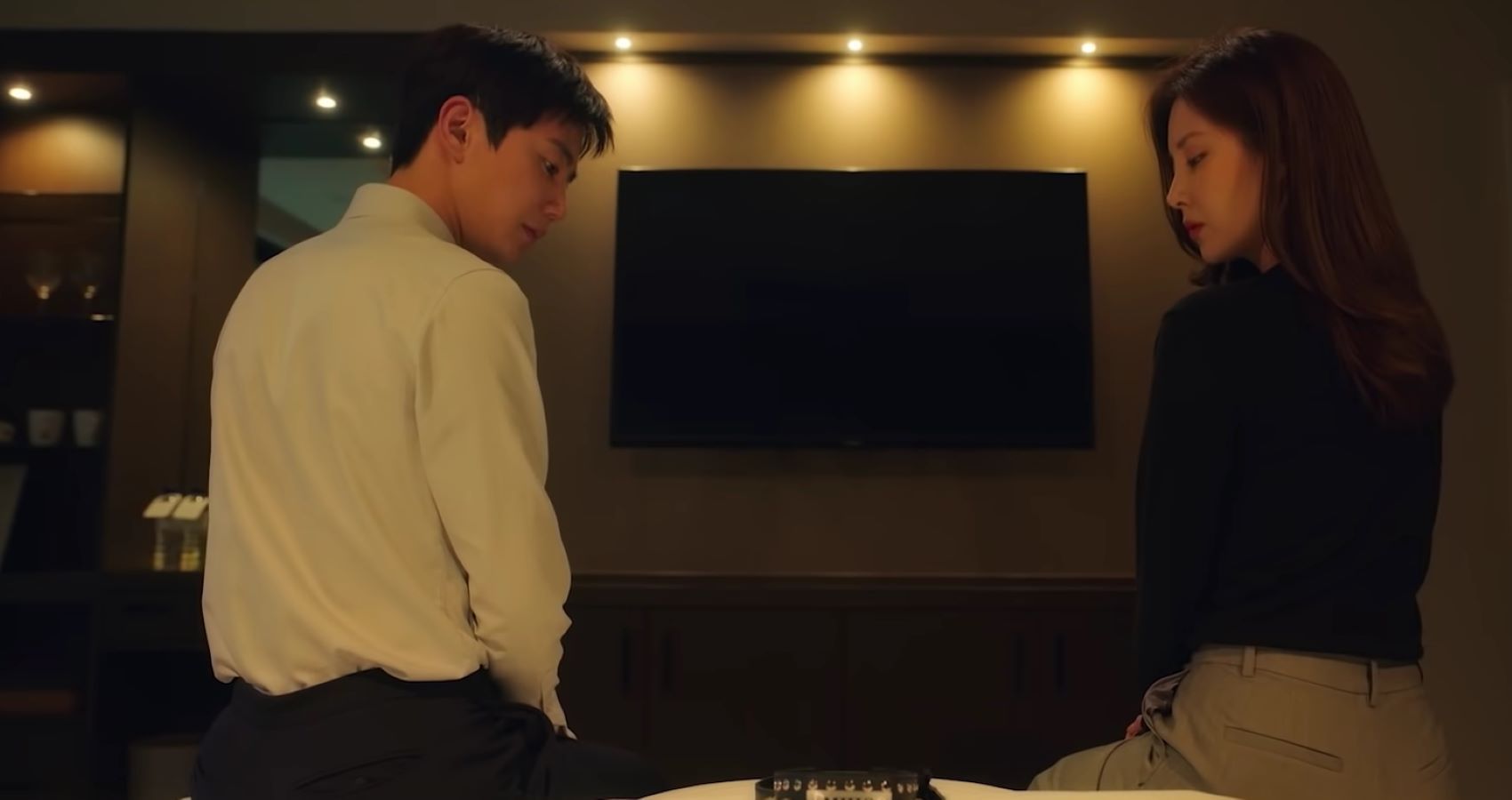With a slowly growing number of South Korean adaptations and remakes forecasted to hit screens over the next few years, it might not have been too hard to find Netflix’s new film Love and Leashes and not anticipate another version of 50 Shades of Gray. Those books and movies had, after all, taken the world by storm when they came out, leading to a steaming mass of merchandise, money, and fame.
With Korean media becoming so popular in the West in past years, it would make sense that another S&M-themed drama should make its way back into the public eye from the South Korean perspective at some point. And at first glance, there definitely are some similarities in both franchises, as the two main characters meet professionally and develop a relationship almost entirely revolving around the male desire to participate in S&M play.
However, while E.L. James’ protagonist Anastasia finds her work almost disregarded after entering her relationship, Love and Leashes’ Jung Ji-woo (Seohyun) finds her relationship encouraging her to re-examine her workplace. This is just one of many differences between the two shows, which establishes Love and Leashes as the healthy portrayal of the S&M relationship where 50 Shades had been close to toxic. In other words, there are more than a few reasons why Love and Leashes has found success.
As the film’s protagonist struggles throughout against a harmful work environment, here is how Love and Leashes uses its S&M overtones to quietly expose the modern workplace.
Why the Workplace Is the Perfect Stage
South Korea maintains one of the world’s toughest modern working environments, with a problematic culture of hierarchical respect, overtime, and professionalism. Love and Leashes’ plot revolves around this workplace. Its protagonists first meet each other in the office as Jung Ji-hoo (Lee Jun-young) joins his new co-worker Jung Ji-woo in the PR department of a children’s toy company. In this scene, Jung Ji-hoo manages to resolve a conflict of interest as Jung Ji-woo fails to convince her manager that collaborating with a homophobic YouTuber is not a good idea. It is implied that the department manager likely only listened to Jung Ji-hoo because of his gender, and despite calling out the manager for his sexist remarks in the same scene, Ji-hoo continues to gain the respect of the manager throughout the series, where Jung Ji-woo continues to be a target for criticism.
However, while Jung Ji-hoo manages to acquire a position of dominance in the workplace, cold-hearted colleague Jung Ji-woo reclaims that position in her relationship. After a mishap, she accepts Jung Ji-hoo’s request for her to take a dominant role in an S&M relationship between the two. The relationship itself is treated like a job, with Ji-woo and Ji-hoo co-signing a contract to agree on the terms and length of their involvement, providing a strict list of places to be and things to do. This relationship is then largely carried out within Ji-hoo and Ji-woo’s workplace, the non-sexual S&M acts between the two taking place mainly during the daytime. Daily tasks between colleagues become opportunities for intimacy -- an errand, a pair of glasses, and even other unassuming colleagues -- taking on new meaning in the landscape of the S&M relationship.
One night the couple stay late at work, raging around the office together joyfully in a situation that usually would have been associated with exhaustion, throwing papers around, breaking their boss’s things. The amount of anger and frustration let out in this scene is implicit as Ji-woo's actor Lee Jun-young tells his co-star Seohyun, "I think you cursed your whole life's worth right there" in an interview with The Swoon.
The pain and pleasure of the workplace are superimposed upon the pain and pleasure of the S&M relationship, opening up important questions on our relationship with work and, perhaps most importantly, with authority. The unwanted sexual harassment by the couple’s boss is known by all but done nothing about, while an unorthodox workplace relationship is a taboo that even we as an audience find ourselves hoping will go unnoticed.
Sex vs. Sexism
Netflix has increasingly begun funding more shows and films tackling complex social issues, its popular release Inventing Anna recently having become the topic of some discussion on sexism. And while Love and Leashes might not address these issues in the most explicit way, its closing scene is almost telling of its stance on sexism. The couple sits at the end of a desk, parallel to a small group of suit-clad middle-aged men, facing the consequences of their decision to mix intimacy with work. The company’s executives ask Ji-woo inappropriate questions, and the couple is ultimately made to choose between further degrading themselves or leaving the jobs they had worked hard for. They manage to escape a horrific outcome only on the grounds that these executives don’t want the department manager’s own sexually explicit recording leaked. As the couple quit, they decide to stay together in a relationship without the S&M contract they had originally signed.
For many undoubtedly good reasons, sex and relationships are taboo subjects to approach in the workplace. Still, intimacy-based aggression, in the form of sexism, or other branching acts of inequality, struggle to find that place even after being at the forefront of cultural attention and debate for so long. Like the set of many K-dramas, Love and Leashes portrays a colourful, attractive, and almost sterilely clean workplace. While the workplace is certainly no place to inaugurate an S&M relationship, it is perhaps telling that its workers only found reason to throw around their papers, to upheave the pristine appearance of their office within the boundaries of a happy relationship, rather than in the face of insufferable sexism.
In an interview with Cine21, actors Seohyun and Lee Jun-young cite feeling inspired and connected with their respective characters for their emotional journeys and the situations they're made to navigate. Hopefully, this sense of empathy, breaking away from the tortured anti-romance of the E. L James books we know too well, will further deteriorate our tortured relationship with workplace sexism.



